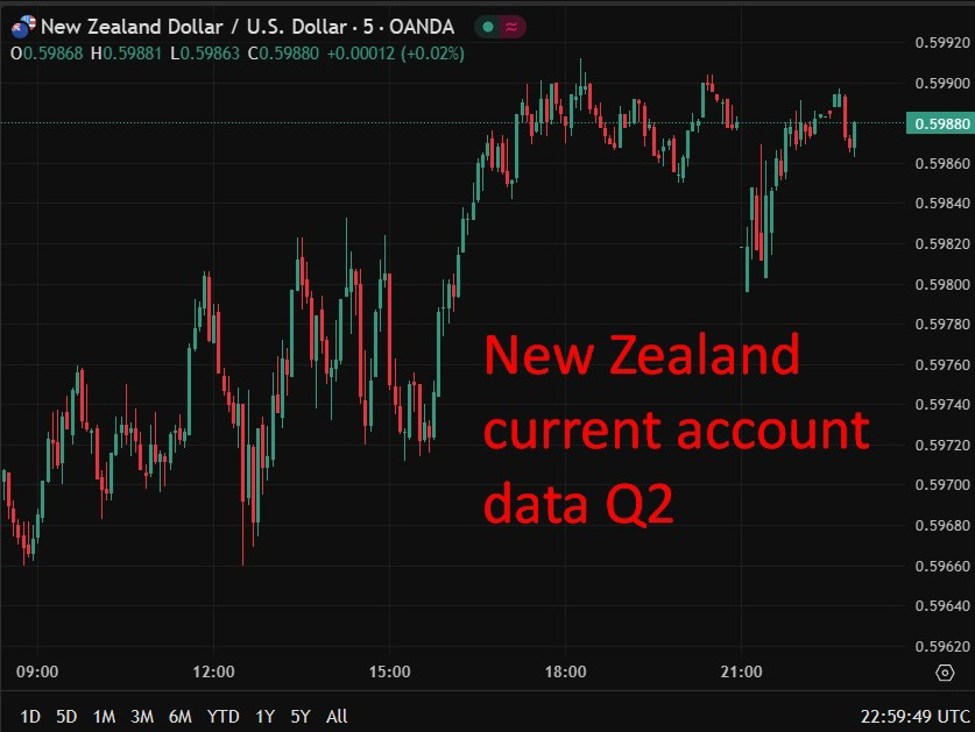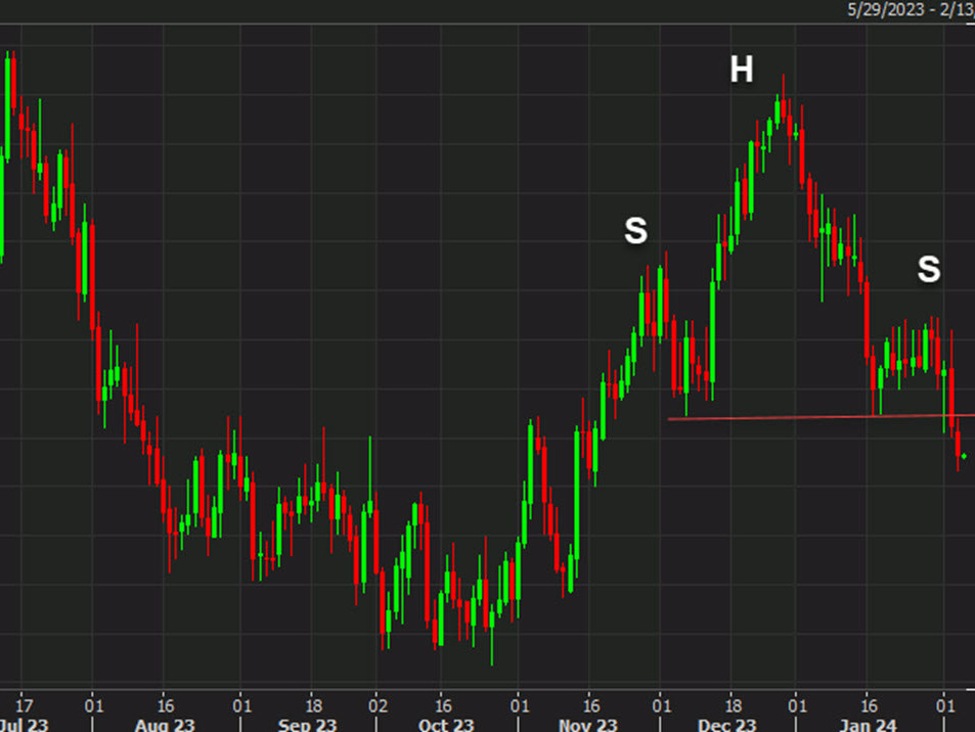The NZ Current Account Balance for Q2 2025 has come in at a much smaller deficit than was expected, and much smaller than Q1.
- NZ Current Account Balance Q2 2025: -0.970bn NZD (expected –2.700bn, prior 2.324bn)
- New Zealand Current Account Annual (Q2) is -15.956bn NZD (expected -20.4bn, prior -24.662bn)
- New Zealand Current Account/GDP (Q2) -3.7% (expected -4.8%, prior -5.7%)
NZD/USD is down just a bare few tics after the data. Blink and you’d miss it.
—
The current account is a key part of a country’s balance of payments (which records all transactions with the rest of the world). It mainly tracks the flow of goods, services, income, and transfers.
It has four main components:
-
Trade in goods (exports minus imports of physical products)
-
Trade in services (exports minus imports of services like tourism, banking, shipping, etc.)
-
Primary income (cross-border investment income like dividends, interest, and wages)
-
Secondary income (one-way transfers such as remittances, aid, or pensions sent abroad)
Surplus vs deficit:
-
A current account surplus means the country earns more from exports, services, and investment income than it spends on imports and transfers.
-
A current account deficit means it spends more abroad than it earns, often relying on borrowing or capital inflows to cover the gap.
In short: the current account shows whether a country is a net lender or net borrower to the rest of the world.













